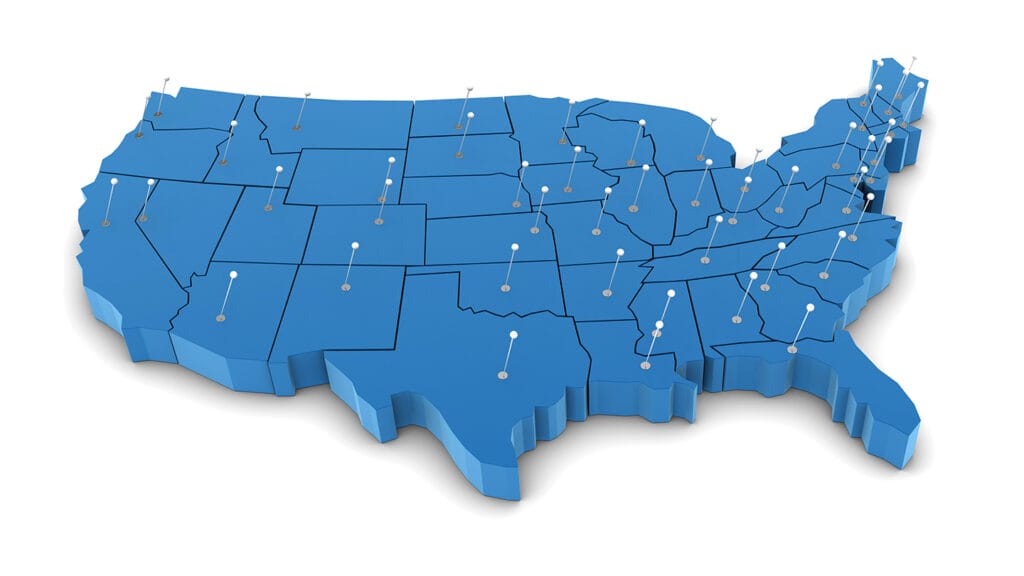This much is known: The current state of Medicare does not adequately support the needs of many of the aging baby boomers. For those who require a more hands-on approach to care, their coverage is considerably lacking.
Adults who are in need of assistance with basic daily activities such bathing and grocery shopping are left to their own devices, which often equates to the need for a family member to step in as a caregiver. While this can be an advantageous option, it can also lead to burnout in the long term. Thankfully, we, as home healthcare providers, are closing the gap as we offer options that allow for as much as 24-hour care.
How is care covered currently?
Currently, senior care is financed through various means, including private pay, auto insurance (PIP), aide and attendance (through the VA), long-term care insurance and limited coverage provided by Medicare for home healthcare. In most cases, nurses are accessible for a quick check-in and are on their way. This leaves little to no opportunity for help with the various needs of the patients, hence the Medicare care gap we are witnessing.
As of 2023, Medicare primarily covers home health care services that are considered skilled services. This includes medical services provided by healthcare professionals such as nurses and therapists. Medicare provides coverage for up to nine weeks at a time, subject to specific eligibility criteria. However, as we noted above, Medicare does not cover non-skilled personal care services, which are essential for seniors who require assistance with activities of daily living and instrumental activities of daily living.
“To improve is to change; to be perfect is to change often.”
Winston Churchill
Expanding Medicare coverage for non-skilled care
Unsurprisingly, there is a growing demand for coverage of non-skilled home care services to promote seniors’ independence and well-being. As the need for these services continues to rise, there is a possibility of expanding Medicare coverage to include non-skilled home care. A development such as this would significantly enhance the affordability and accessibility of senior care services for Medicare beneficiaries. Currently, funding these services is difficult for many families, and as a result, many families lack the care they need for their loved ones. Unfortunately, there is no concrete evidence that this change will take place at any point in the future, though it’s likely that countless families are calling for this.
The future of senior care within the Medicare realm is more than likely to witness a greater integration of technology and telehealth solutions. Following the pandemic, both seniors and caregivers were able to witness the power of telehealth. Seniors who struggle to move about easily were able to remain in the comfort of their own homes for many medical appointments.
This has continued to transform the healthcare industry as a whole, with no sign of looking back. In fact, according to a recent survey conducted among physicians primarily serving Medicare fee-for-service and Medicare Advantage patients, it is projected that by 2025, an estimated $265 billion worth of care services for beneficiaries could be transitioned from traditional facilities to home-based settings.
This potential shift in care delivery has the potential to occur without compromising quality or accessibility, making it advantageous for all parties involved.
In addition to this, technological advancements like remote monitoring devices and wearable sensors can facilitate early detection of health issues and enable timely interventions. These innovations can improve care coordination, enhance patient safety and reduce hospital readmissions. Medicare has already embraced these technologies, offering incentives and reimbursements to encourage their adoption within the senior care ecosystem. Currently, though, acquiring reimbursement for this monitoring is not always an easy task. In the future, Medicare may increase access to this helpful option and allow for more widespread usage.
Emphasis on preventive care, chronic disease management
As the focus on preventive care and chronic disease management intensifies, Medicare is expected to allocate more resources toward programs that support proactive health management among seniors. This could include initiatives to promote healthy lifestyles, provide education on disease prevention, and incentivize regular screenings and check-ups. Prioritizing preventive care will allow Medicare to potentially improve overall health outcomes and decrease healthcare costs.
In the future, there will likely be a greater emphasis on collaboration and integration among various care providers within the Medicare realm. This could involve closer coordination between home care agencies, hospitals, primary care providers, specialists, and community-based organizations.
Integrated care models aim to enhance care transitions, reduce duplication of services, and improve overall care quality for seniors. Medicare may incentivize such collaborative efforts through value-based payment models and accountable care organizations.
The future of senior care within the Medicare realm holds immense potential for positive change. With such a rapidly aging population, there is a pressing need to adapt and expand Medicare’s coverage to meet the evolving needs of seniors. Including non-skilled home care services and leveraging technology can allow Medicare to pave the way for a more comprehensive and patient-centered approach to senior care. Leaders in the home care space should strive to stay informed about these potential developments in order to navigate the changing landscape and continue providing high-quality care to seniors within the Medicare system.
Lance A. Slatton is a senior case manager at Enriched Life Home Care Services in Livonia, MI. He is also host of the podcast All Home Care Matters, a podcast and YouTube channel. The channel recently earned the YouTube Creator Award for surpassing 100,000 subscribers. By subscribing to the show, you will gain access to a wealth of information and tips that can help you provide the best possible care for your loved one. Find it on Apple podcasts or YouTube at @AllHomeCareMatters.
References:



